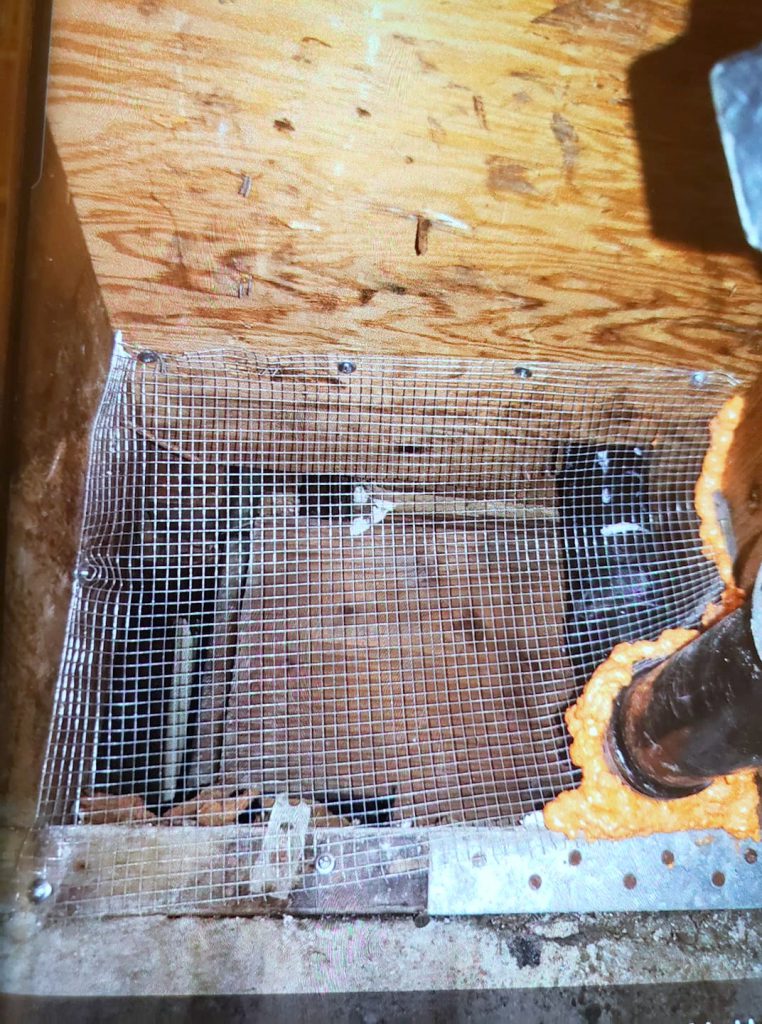

Unless they are being kept as pets in cages, seeing a mouse in the house is a homeowner’s worst nightmare in every conceivable way. Not only do they reproduce incredibly quickly, but their small size makes it a breeze for mice to get anywhere in your home through crawl spaces and the inside of walls. Mice are also renowned for being carriers of a number of diseases and bacteria which can be very harmful to humans and other creatures either from direct contact or transmitted via their droppings.
Like many other rodent household pests, mice love to chew on electrical cables and other hard surfaces to keep their teeth nice and sharp. This can cause significant damage to your home, from weakening structural stability to starting house fires. And because they are experts at exploring your home from inside the walls, you might not find out until it’s too late.
Removing mice from your home is a battle of attrition because you will almost never be dealing with just one mouse. They breed fast, and they have become so adept at living amongst humans that they have gotten used to all the popular home remedies such as peppermint sprays and oil-soaked cotton balls.


So, how exactly do you remove mice from your home?
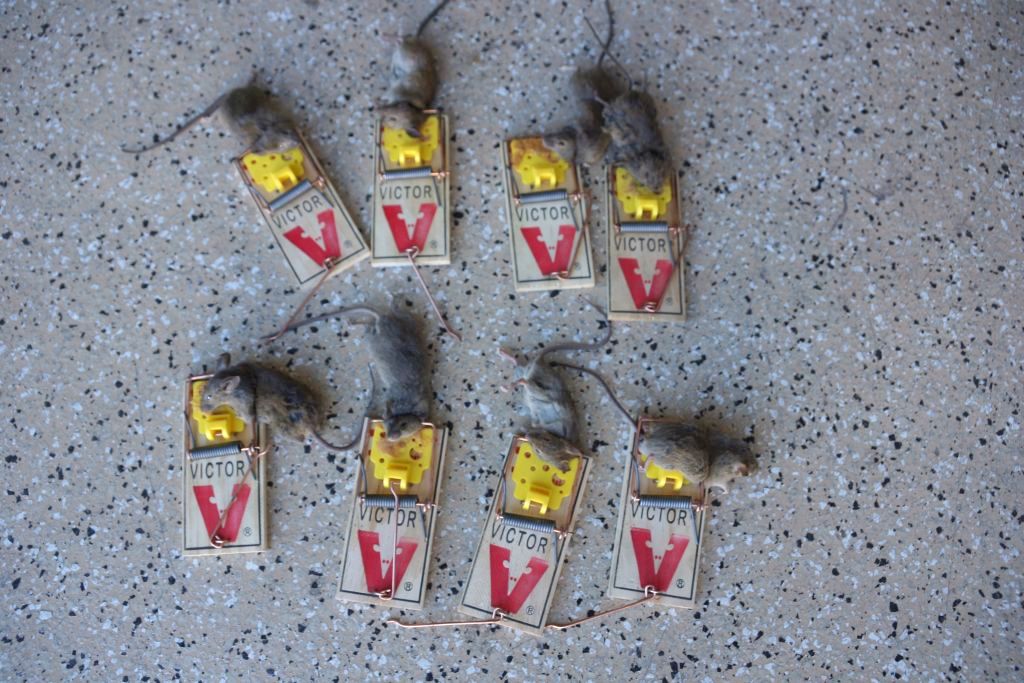

Mice are one of the hardest pests to keep out of a home because they are so nimble and small. The common house mouse is so small it can fit through a gap the size of a nickel. That makes it a big job to seal up your home against these pests. Visit animalatticpest.com to learn more about mouse prevention methods.
Mice like to invade homes because they can easily find safety, shelter, warmth, and plentiful food in these environments. One practical step you can take to prevent mice from wanting access to your house is to simply keep it clean – removing crumbs, putting food away, and taking out the trash can all go a long way towards preventing mice.
How to Prevent Mice
There are a lot of ways mice can get into your home, and there are plenty of reasons why they would want to. At Mighty Men Pest Control, we’ve found that people have tried all kinds of DIY methods to keep mice away. Some of them are effective, and some aren’t. The good news is, many of the best methods to prevent mice are easy and cheap to implement.
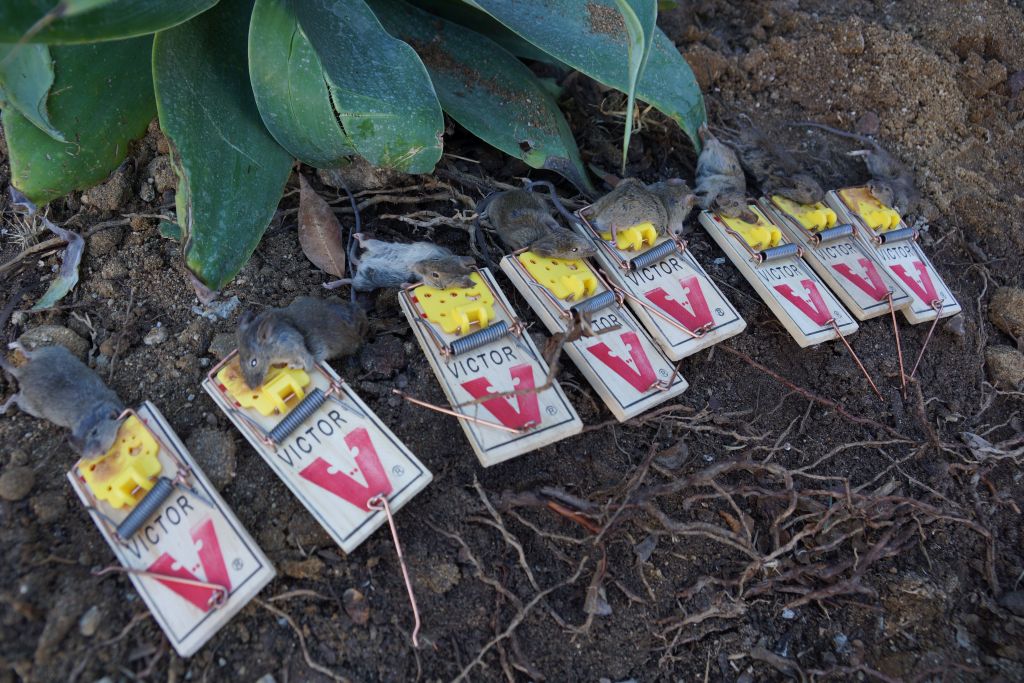

Seal Up Your Home
This is definitely the best way to keep mice out of your house, but it can also be one of the most time-consuming. Think about it – if a mouse can fit through a hole the size of a nickel, then there are probably hundreds of ways one could get into your home.
Don’t stress about this – at Mighty Men Pest Control, we’ve done this hundreds of times so we know where to look. We recommend that you seal up any gaps in these locations:
To seal gaps, the two best materials to use are silicon caulking and steel wool. Caulking is difficult for mice to chew through and steel wool is impossible for them to penetrate. If you have gaps around the bottom of your doors, install steel jambs or thick, sturdy rubber weather stripping.
You can do the same thing outside of your home too, and we strongly recommend that you do. Make sure any exterior doors are fully sealed on all sides. Do the same for windows and garage doors. You can also check pipes and dryer vents from the exterior to make sure there are no gaps.
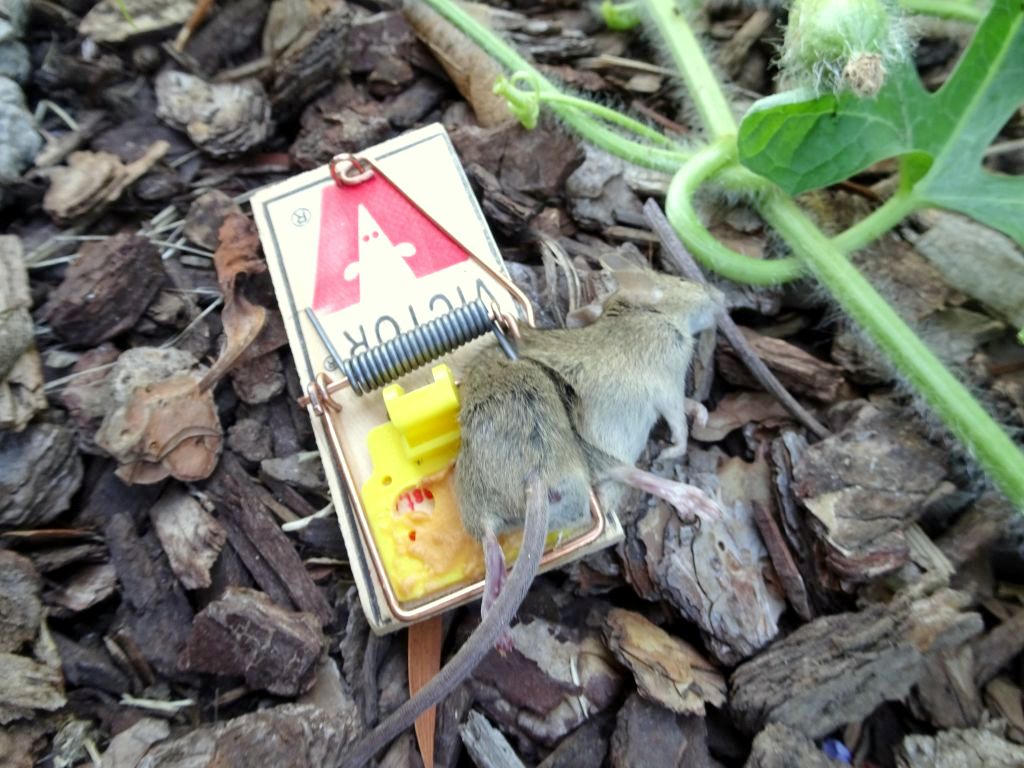

Use Mouse Repellants
We included this because we’ve heard some stories of success, but generally, we don’t see much effectiveness from mouse repellants. That said, you can try out these methods at low cost and with little effort:
At Mighty Men Pest Control, we do not recommend using toxic repellants like antifreeze or poisoned bait. While these seem effective, they create other more serious problems. Think about it – if a mouse eats something and then dies in your house, it’s going to smell really bad. The mouse is probably also going to die somewhere that isn’t reachable without cutting up your walls. In the worst case, a pet or child could get sick from the poison too.


Trap the Mice
At Mighty Men Pest Control, our preferred prevention method for most animals is almost always trapping. That’s because it’s been proven time and again to be highly effective if done properly.
You can get basic snap-style mouse traps at any hardware or home improvement store. Our favorite baits include peanut butter, cheese, dried fruit, chocolate, bacon, and hazelnut spread. When attaching the bait to the trap, be sure to secure it with wire or fishing line, otherwise, the mouse will easily be able to pluck the bait right off the trap without setting it off.
At Mighty Men Pest Control, we’ve also found live traps to be highly effective. To trap the mouse, it only needs to walk into the trap – the door then closes and the animal is stuck inside. With these traps, there’s no way the mouse could make off with the bait. The only drawback is you’ll have to take the mouse a few miles from your home to release it.
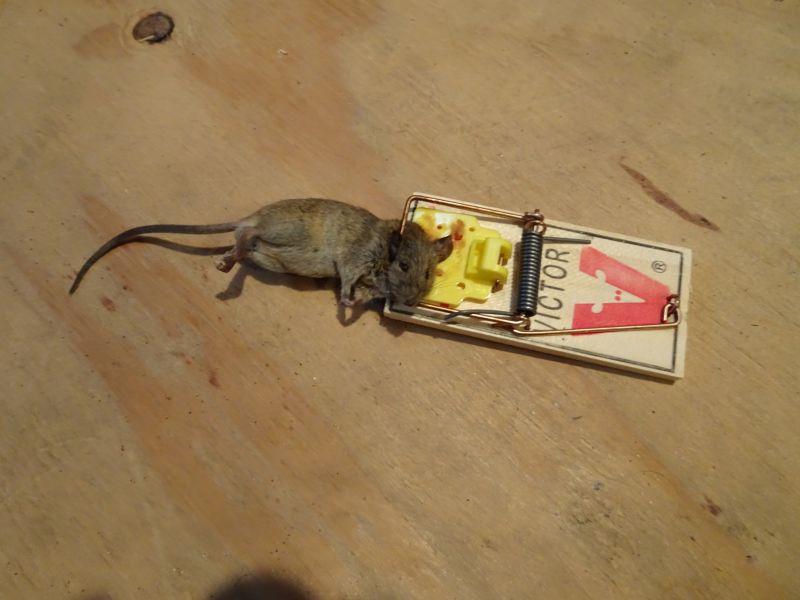

Mice are very dirty and unpleasant little creatures that invade homes to wreak a lot of havoc. Mice infestation is every homeowner’s worst nightmare. Because these creatures live in the stinkiest of places, including the sewers, they carry a lot of very dangerous diseases. If you are wondering what diseases mice can transmit to humans and other animals like your pets, here are 5 diseases spread by mice.
Hantavirus: this is a viral infection that is caused by inhaling dust particles when cleaning dried rodent droppings. It can also be contacted by direct contact with mice droppings or urine, and symptoms often include fever, headache, and muscle pain. In very severe cases, patients may experience severe coughing and fluid in the lungs. If left untreated, Hantavirus can be fatal.
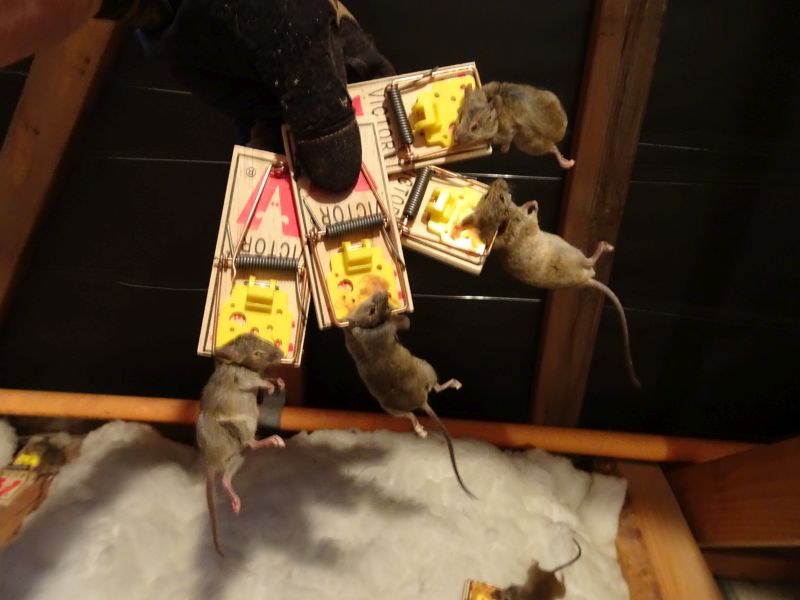

Salmonellosis: this is a disease that affects the intestinal tracts of animals and humans, and causes stomach upset with symptoms like diarrhea, abdominal pain, chills, and fever. It is caused by a bacteria called Salmonella, which can be transmitted through eating food or drinking water contaminated by rat urine or feces.
Leptospirosis: This is a bacterial infection that is caused by the bacteria Leptospira, which lives in the kidney of some animals. This disease affects both humans and animals and can have a wide range of symptoms. In very severe cases, Leptospirosis can result in kidney damage and liver failure.
LCM: this is a rodent-borne viral infection known as lymphocytic choriomeningitis and caused by LCMV (lymphocytic choriomeningitis virus). The disease is often gotten by direct contact with mice droppings, especially inhaling dust particles when cleaning out dried mice droppings. An estimated 5 percent of house mice in the United States carry this disease with the ability to transmit it.


Rat-bite fever: this is a bacterial infection that is transmitted through direct contact with rats and other rodents. There are two types of rat-bite fever; streptobacillary rat-bite fever and spirillary rat-bite fever. The most common type of rat-bite fever in North America is streptobacillary rat-bite fever, and it’s caused by the bacteria S. moniliformis. Symptoms of rat-bite fever include headache, vomiting, fever, muscle pain, joint pain or swelling, and rash.
How do mice spread diseases?
We often hear that mice can spread different dangerous diseases, but how exactly do they spread these diseases? Here are three ways mice spread diseases.
Through urine and feces
Mice urine and droppings are usually the first signs of a mouse problem. But that is one way that mice spread disease. They leave behind lots of dangerous microorganisms hidden in their urine and droppings, and anyone or animal who comes in contact with them can become sick. The worst is when mice contaminate food with their urine or droppings or leave them in areas where pets or kids can ignorantly or accidentally touch them.
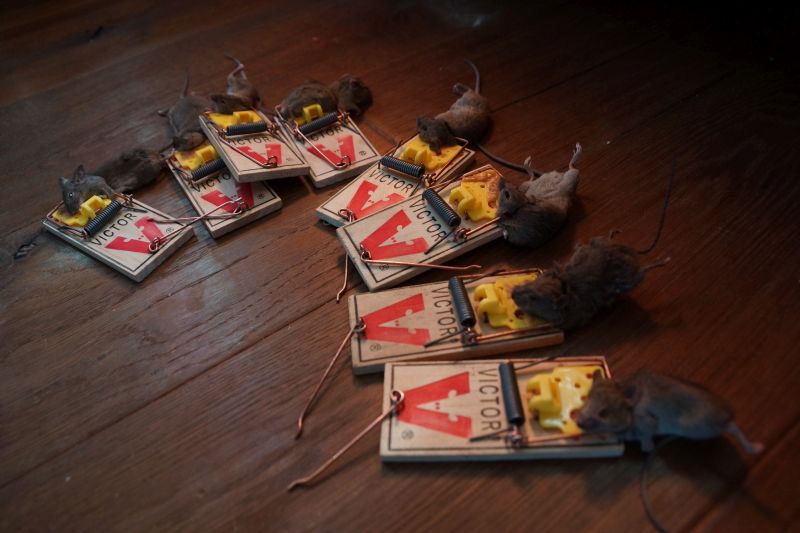

Through bites
Mice typically don’t bite, but they can. And when they do, they will spread some of the diseases they carry through their saliva. Diseases like rat-bite fever can be gotten from getting bitten by a rat or mouse.
Through the parasites they carry
Mice and rats indirectly spread certain diseases by spreading the parasites that cause them. For instance, they can spread dog or cat fleas, they can also spread Lyme disease or Colorado tick fever by spreading ticks.
Controlling Mice
You can only prevent mice diseases by keeping these little destructive creatures out of your home. Dealing with a mouse infestation is a nightmare that you don’t have to face alone. Our expert team at Mighty Men Wildlife Trapping will humanely and efficiently remove mice from your home, and do a thorough clean and disinfection to prevent the spread of deadly diseases.
Let Us Get the Critters Out for Good
Request a ConsultationCities we service in the following California Bay Area cities: Alameda, Albany, American Canyon, Antioch, Atherton, Belmont, Belvedere, Benicia, Berkeley, Brentwood, Brisbane, Burlingame, Calistoga, Campbell, Clayton, Cloverdale, Colma, Concord, Corte Madera, Cotati, Cupertino, Daly City, Danville, Dixon, Dublin, East Palo Alto, El Cerrito, Emeryville, Fairfax, Fairfield, Foster City, Fremont, Gilroy, Half Moon Bay, Hayward, Healdsburg, Hercules, Hillsborough, Lafayette, Larkspur, Livermore, Los Altos, Los Altos Hills, Los Gatos, Martinez, Menlo Park, Mill Valley, Millbrae, Milpitas, Monte Sereno, Moraga, Morgan Hill, Mountain View, Napa, Newark, Novato, Oakland, Oakley, Orinda, Pacifica, Palo Alto, Petaluma, Piedmont, Pinole, Pittsburg, Pleasant Hill, Pleasanton, Portola Valley, Redwood City, Richmond, Rio Vista, Rohnert Park, Ross, St. Helena, San Anselmo, San Bruno, San Carlos, San Francisco, San Jose, San Leandro, San Mateo, San Pablo, San Rafael, San Ramon, Santa Clara, Santa Rosa, Saratoga, Sausalito, Sebastopol, Sonoma, South San Francisco, Suisun City, Sunnyvale, Tiburon, Union City, Vacaville, Vallejo, Walnut Creek, Windsor, Woodside, and Yountville.